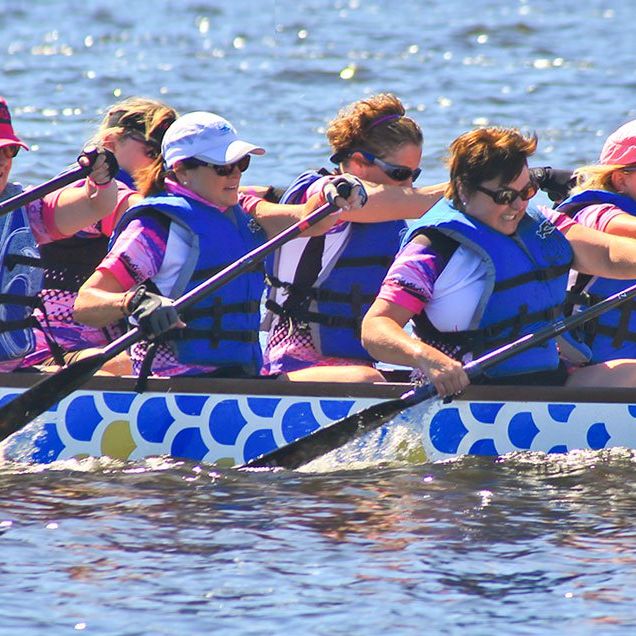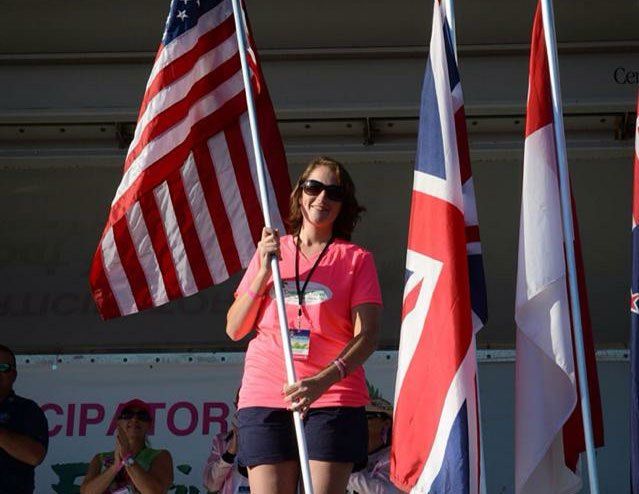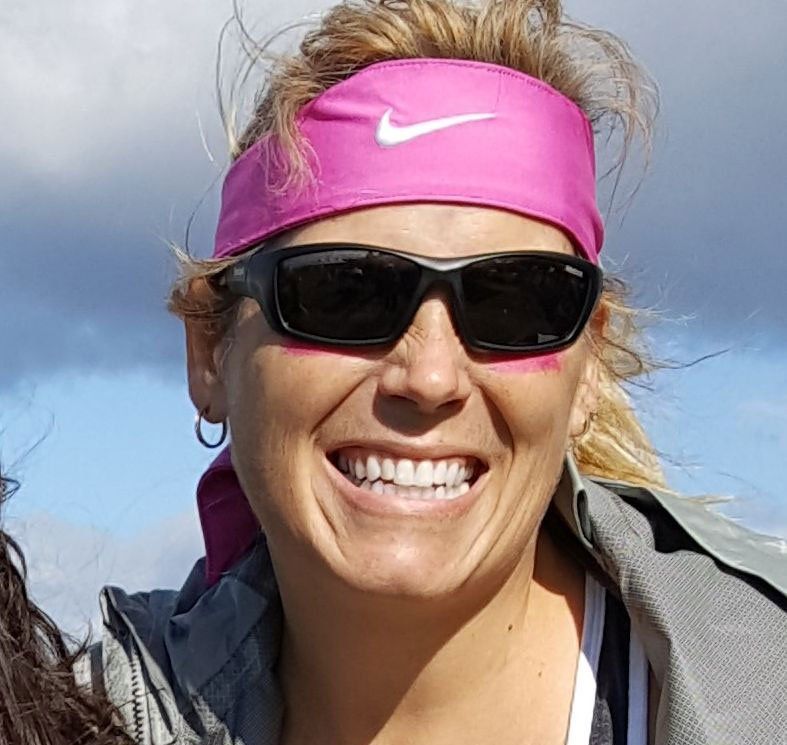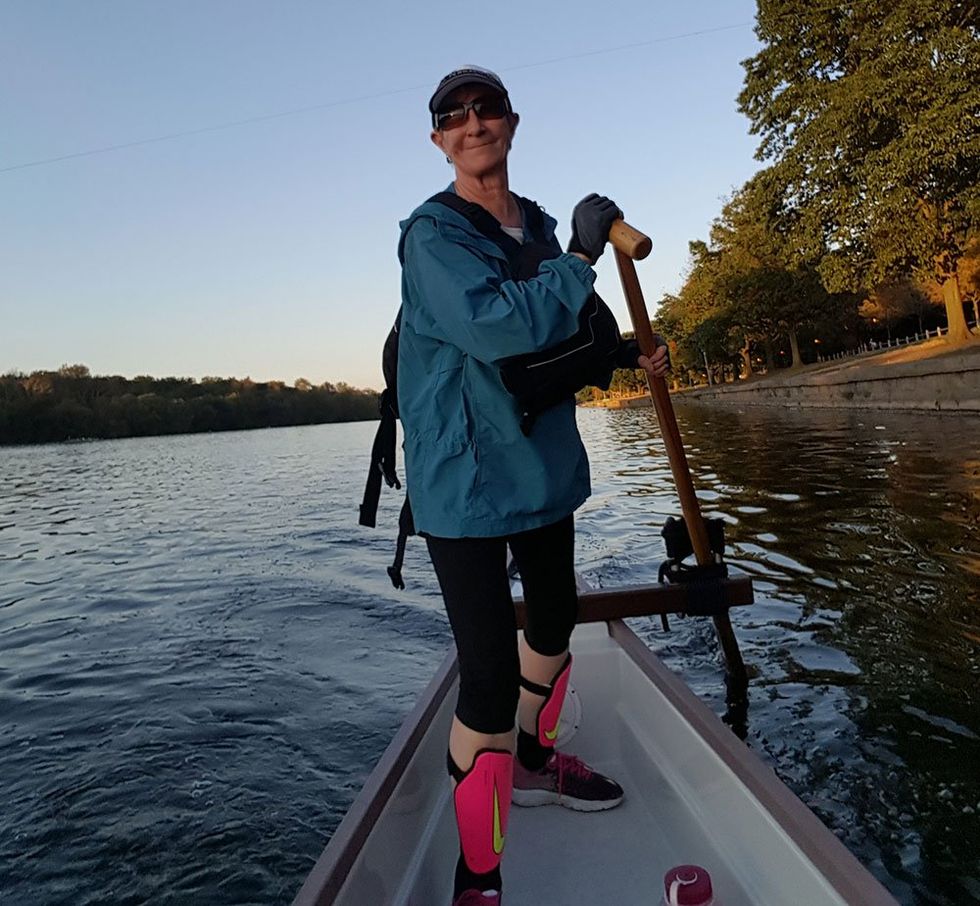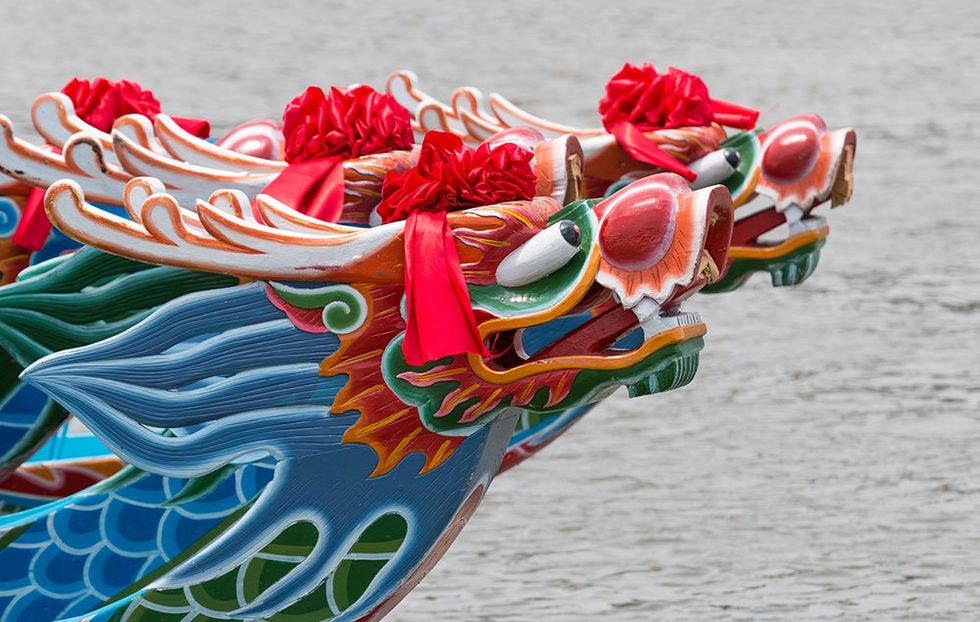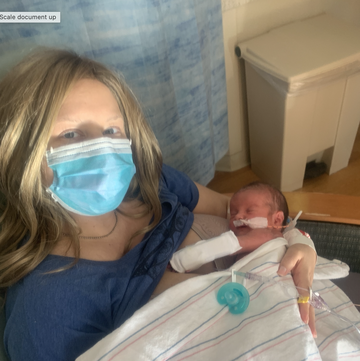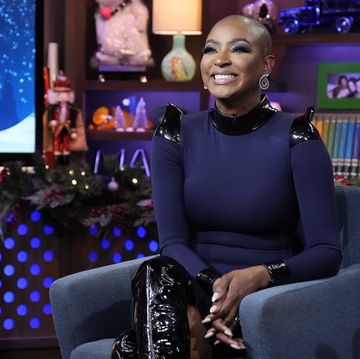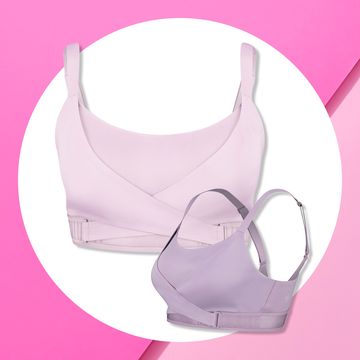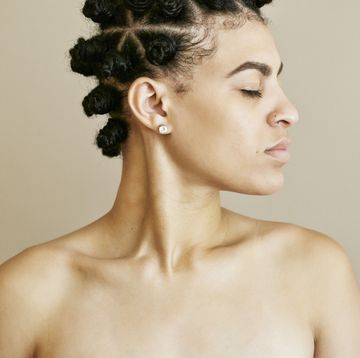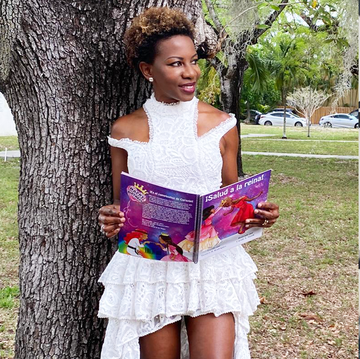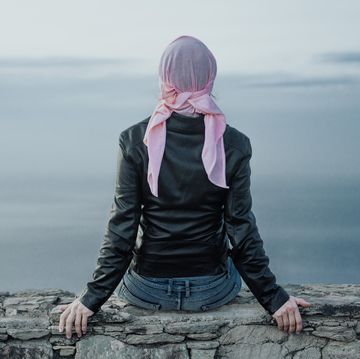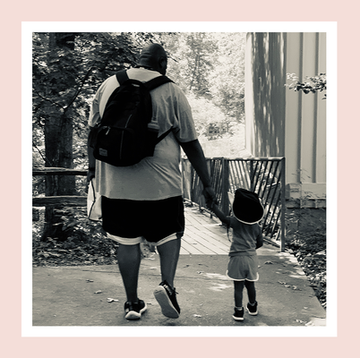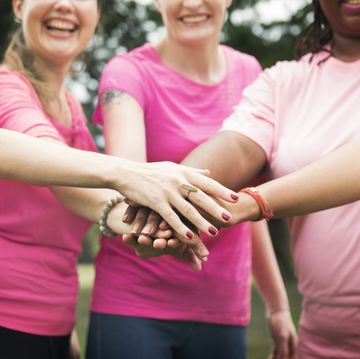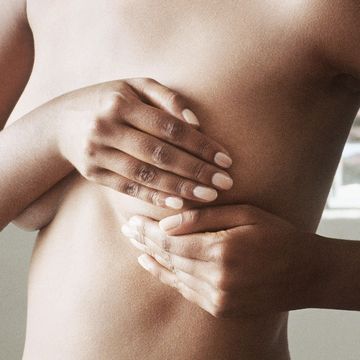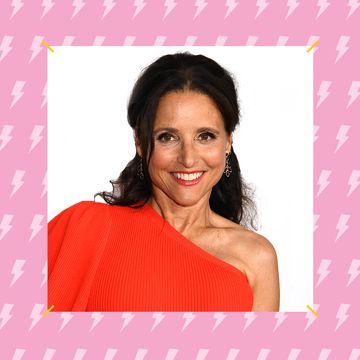When you’re staring down a cancer diagnosis, it takes serious grit to power yourself through the punishing treatments and uncertain outcomes. It turns life upside down. It can make you feel alone.
Enter a movement that breast cancer survivors around the country are joining in force: dragon boat racing, a 2,000-year-old ancient Chinese water sport. These women who were once in the same proverbial diagnosis-and-treatment boat are now literally climbing into the same boat, channeling their grit in grueling training sessions and races.
It started nearly 20 years ago, when Canadian sports medicine specialist Donald C. McKenzie challenged the thinking that breast cancer survivors should refrain from strenuous activity. He inspired breast cancer survivors to come together on dragon boat teams because he believed it would benefit their physical health and social wellbeing. His research, published in the Canadian Medical Association Journal, found “an emerging hypothesis that dragon boating is a vehicle for improving women’s wellness and post-treatment quality of life.” More recent studies have proven the benefits of exercise after breast cancer treatment.
Didier Allexandre, Ph.D., leading research scientist in the Human Performance and Engineering Lab at the Kessler Foundation, is currently studying the effects of exercise on weakness and fatigue after breast cancer, and he has a few members of dragon boat teams participating in his research. “While we’re still in the middle of our study and don’t have conclusive results yet, we could make the conjecture that an exercise such as dragon boating would help not only with post-treatment symptoms such as physical weakness and fatigue, but would also benefit these women psychologically, thanks to the team aspect of the sport,” says Allexandre.
Here, meet six breast cancer survivors who say dragon boating did all of that—and more.
Kelly Della Rosa, 30, from Vernon, New Jersey
“I was diagnosed five years ago when I was just 24 years old. I was so young. I found a lump when I was doing a self-breast exam, and then I went through surgery, chemo, and hormonal therapy. I thought I was through it all. Then, in November of last year, a routine MRI caught a lymph node on my right side that didn’t look right, and sure enough, it was cancer again. So at 29, I had another surgery to remove all of my lymph nodes and had to go through chemo and radiation again.
"I ask myself ‘why?’ a lot—even more so this last time around, because it’s so frustrating to go through it again. I’ve been married for six years, and breast cancer has affected my childbearing years. It’s been so hard.
"I went to Memorial Sloan Kettering Hospital for my treatment, and during one of my follow-up appointments in 2014, I found information about a breast cancer dragon boat team in New York City. Soon afterward, I started Googling teams in New Jersey, found one, and joined. It’s been amazing. I’m the youngest on the team, but a few of the other women were young when they were diagnosed. And it’s cool for me to see how long they’ve been cancer free. It gives me hope.
"A lot of people tell you, ‘Cancer is a gift.’ Five years ago, I told anyone who said that to me that they’re crazy. But in some ways, breast cancer did open up a lot of new opportunities, and dragon boat has definitely been one of them for me. It’s inspired me to chart a new course, create a new normal, and remember that I can still achieve all the things I wanted to do before I was diagnosed.”
Learn how to do a breast self-exam:
Phyllis Silverstein, 49, Havertown, Pennsylvania
“I found a lump right before my 45th birthday, almost five years ago. My doctor called me the day before Thanksgiving to tell me, indeed, it was cancer. Of course, I had 20 people coming over for dinner the next day.
"It was a small mass—early stage, 1A, triple positive. In hindsight, it was the best kind of breast cancer to have. But in the days after my diagnosis, I was in shock. My doctor recommended six chemo treatments. Right after my third treatment, my mom passed away. I kind of floated through that time; I don’t really remember it. I finished chemo and then had 7 1/2 weeks of radiation. I also had a lot of complications from my lumpectomy. I recently had my 14th surgery in five years.
"A couple years ago, while I was recovering from one of those surgeries, I went to see all three of my doctors speak at a local library near the hospital. I happened to be sitting right next to a table for the local dragon boat team. I was an athlete in high school and had been very active up until until my diagnosis. So I went over to the table and talked to the women on the team. They encouraged me to come out to a practice. I told them I’d just had surgery, and they said, ‘Well just come out and watch!’
"I joined on the spot. This is my second season on the team, and it’s helped me feel like I’m getting back to my old self again. I’m all about being fierce. I wear the stuff football players put under their eyes, except it’s pink. When I wore it the first time, everyone was like, ‘Look at you!’ These 78-year-old women are coming up to me saying, ‘I want to be fierce!’ And I’m like, ‘You are fierce!’”
Related: This Woman's Viral Photo Reveals A Breast Cancer Symptom That's Easy To Overlook
Nancy Hardy, 68, Philadelphia, Pennsylvania
“I was diagnosed with stage 3 breast cancer when I was 48. My daughter was just 11 years old at the time. I had a lumpectomy, and all of my lymph nodes removed in my right arm, followed by six months of chemotherapy and two months of radiation. I’ve never had a recurrence—knock on wood—and I was relatively lucky in spite of all that.
"I worked full-time during the entire course of my treatment, and for the decade or so after my diagnosis, I was busy focusing on my daughter—I didn’t really think a whole lot about myself. Finally, it hit me that I’d put my own life on hold, and I needed to get my body healthy again.
"I’m involved in a support group at my local hospital, and back in 2007, someone came in to talk about Hope Afloat, a local dragon boat team for breast cancer survivors. I’ve always been very active. Even when I was going through treatment, I was always on the treadmill. I think for me, it gave me a certain level of control. It was an hour a day where I didn’t think about breast cancer; it was time I used to think about getting my body stronger. And I knew that if I was going to fight breast cancer, I needed to be as strong as I could. When I heard about the team, I hired a personal trainer to train me for a year. I wanted to be ready for tryouts. In 2008, I went to one of the Hope Afloat team meetings and asked when I could try out. They laughed and said, ‘Oh, you don’t have to try out. You’ve already tried out. You had breast cancer.’
"I’ve been on the team for the last 10 years, and these women are more than just my teammates. It’s a sisterhood of people who understand what you’ve gone through.”
Related: The Signs Of Ovarian Cancer EVERY Woman Should Know About
Ingrid Morris, 57, Oak Ridge, New Jersey
“I was in my doctor’s office when I saw a flyer about dragon boating. I was trying to find anything to do that would get me to exercise, because I lost my drive for that after my double mastectomy. I was diagnosed with breast cancer in 2012 and was very active up until that point. After my surgery and treatment, the things I once loved—skiing, swimming—lost their appeal.
"After my first dragon boat practice, I was in love. Apparently, it was evident, because my coach at the time looked at me and said, ‘Great! A fanatic.’ I got into practicing with the team in 2014, and even switched my work schedule so I could make our training sessions. I refer to dragon boating as therapy on the water. Our conversations go from A to Z—you don’t know what’s going to come up—but almost always, someone says something and someone else says, ‘Oh, I’ve experienced that, too, and this is what you do.’
"I feel so much better now that I paddle. It gets me out of my head and makes me happy. And the best part is that I have the support of the other people in the boat. It’s not about how strong you are—it’s about how strong you are together. Even though what brought us together is cancer, we’re there for each other now. No matter what the challenge, we rally around each other and show up in force. We’re family.”
(Torch fat, get fit, and look and feel great with Women's Health's All in 18 DVD!)
Pam Brinkman, 62, Cranford, New Jersey
“I was diagnosed with breast cancer 30 years ago, when I was seven months pregnant with my second son. I was scared to death. They couldn’t do anything until I delivered, and then I didn’t want to do anything right away. I waited a couple months to have surgery and undergo treatment because I wanted to spend some time with my newborn and 5-year-old. I didn’t know how it was all going to play out.
"It turns out, I was one of the very lucky people. Everything turned out great. Yet being diagnosed with breast cancer is something that stays with you—always. Which is why nine years ago, after seeing an article about a local dragon boat team of breast cancer survivors, I went to their kickoff season meeting. The first time I went to practice, I was hooked. And I’ve been going ever since.
"I think it’s the people that have always kept me coming back. All of the women are so easy to connect with, because we all have something in common. We don’t dwell on the thing that brought us all together, but we push each other and help each other through it. Everybody’s experience is different, but we’re all there for each other. When we get out on that lake, we let a little bit of all of that hard stuff go and just enjoy ourselves out there. Don’t get me wrong—the exercise can be grueling. But when you’re done, you feel like you’ve taken another step forward in your life. I don’t know what I would do right now if I didn’t have dragon boating helping me take those steps forward.”
Related: This 31-Weeks-Pregnant Reddit User Says No Doctors Will Take Her—Here's Why
Peggy Salisbury, 67, Union, NJ
“In 2000, I reconnected with my high school sweetheart. We’d been back in a relationship again after all that time for a little more than three years when I was diagnosed with breast cancer in February, 2003. By that July, I started chemotherapy. By the following January, I’d had two surgeries, six rounds of chemo, and 35 days of radiation. I was feeling pretty battered. Then, in the Spring of 2004, he broke up with me.
"I started walking. A lot. Out of anger and frustration—due to the cancer diagnosis, and the breakup—I walked off 37 pounds. Then I lost another 23 pounds by going to the gym in addition to walking. I figured I was better off working out than trying to find a sharp instrument. Soon after I’d lost all of that weight, I discovered dragon boating. And just like walking, it got my mind off everything because it’s so physically challenging.
"It’s also this beautiful, unique experience because you’re literally in the same boat, with a group of women who’ve all been in the same boat when it comes to facing breast cancer. We all faced that monster, and will continue to face it. In fact, last February—13 years after my diagnosis—I had a recurrence. They found lesions in my spine and skull. I’m back on medication that’s supposed to stall the disease progression for 20 months. Then what happens? I’m at month No. 20 now. I’ve got all of my fingers crossed. What I do know for sure is that my teammates have my back.
"When we race, we place a dragon head at the front of the boat. In this country, we think of dragons as monsters—dangerous creatures to be afraid of. But in Chinese lore, dragons are helpers. When you think about a dragon boat full of breast cancer survivors, the dragon is so poetic. We’re in a boat, paddling in perfect synchronicity, in order to move forward together. Cancer was our monster. But the dragon—and the dragon boating—is there to help us.”
